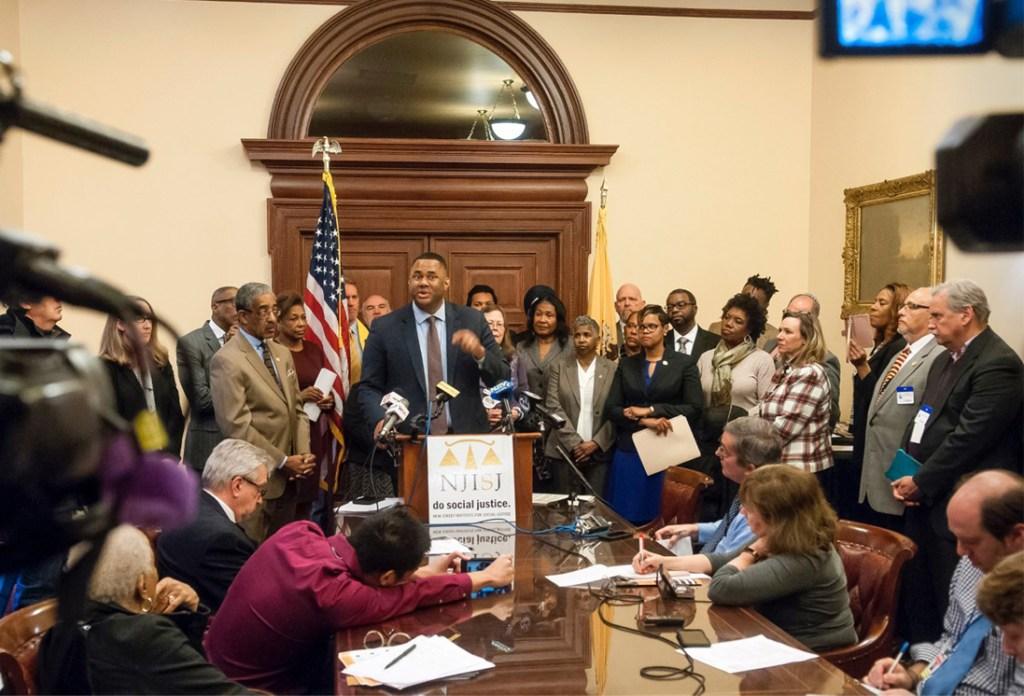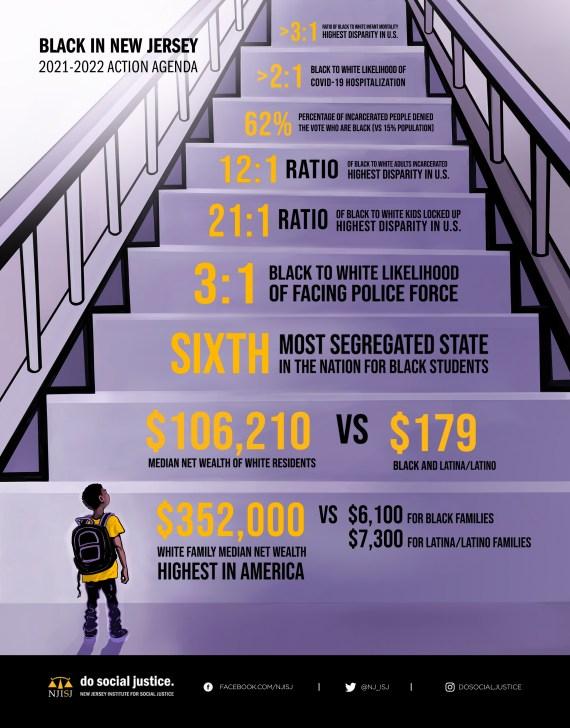Continuing to Push for Social Justice and Equality for All
On June 19, we celebrate Juneteenth, a day that commemorates the emancipation of enslaved people in the United States. In 1979, Texas became the first state to make Juneteenth an official holiday. And yesterday, June 17, President Biden signed the Juneteenth bill, which designates Juneteenth National Independence Day as a national holiday and the first new one since Martin Luther King Jr. Day in 1983.
Yet for Ryan Haygood, president and CEO of the New Jersey Institute for Social Justice, more work remains to achieve full economic and social equity for people of color in the state.
“The undeniable truth is that we are not nearly where we need to be, more than 150 years after the end of slavery in this country,” Haygood said.
The Newark-based NJISJ, which PSEG and the PSEG Foundation have supported since 2007, is a nonprofit research and advocacy organization. It works to identify, analyze and address the underlying causes of social and economic disparities and to challenge the barriers that constrain Black and other communities of color in New Jersey.
“Our work is to empower people of color in New Jersey so that everyone can thrive,” Haygood said. “The state is one of the wealthiest in the nation, yet there is a significant wealth gap that reflects generations of systemic barriers to financial opportunities.”
He points to public policies enacted decades ago – some as far back as the 1860s, which remain in effect – that have hindered people of color from achieving homeownership, voting and building financial wealth, leading to inequity and even increased incarceration rates.
The disparities have grown wider over time, Haygood said, creating a gulf between the typical wealth of Black and brown New Jerseyans and white residents. For example, according to research from the NJISJ, the median net worth of white, non-Hispanic individuals in New Jersey in 2020 was $106,210 vs. only $179 for Black and Latino individuals. In addition, one in every four people of color in New Jersey does not have a bank account, and fewer than half are homeowners.
“We inherited this legacy, but we can change it,” Haygood said. “That involves partnerships with forward-looking, socially minded companies such as PSEG.”
Working together to address structural racism
One way the institute is working to address structural racism is by transforming the youth justice system.
The PSEG Foundation funds grants in alignment with its three pillars: social justice, environmental sustainability, and equity and economic empowerment. Under its social justice pillar, the PSEG Foundation has provided a grant to the NJISJ to help create a community-based system of care for youth. The goal: Keep young people out of isolated youth prisons and in communities where they can receive appropriate guidance and care.
With support from the PSEG Foundation and others, the NJISJ is conducting research and raising awareness of policy reforms needed to ensure young people receive appropriate support and services in schools and through local child welfare agencies and community organizations. Such support has proven more effective in rehabilitation than costly youth prisons that separate youth at critical development stages from families and loved ones.
The PSEG Foundation also has provided support to help NJISJ staff travel to Selma, Alabama, to honor Bloody Sunday, a defining moment of the U.S. Civil Rights era. In addition, the pilgrimage supported professional development for NJISJ staff to better understand ways to enhance voter participation, another critical component of their activities.
“The work that the institute is doing is vital to addressing the underlying causes of racial inequities, and, through systematic policy change, will help build a stronger, more resilient state – a state in which all citizens, of all colors, can prosper,” said Calvin Ledford, president of the PSEG Foundation and director of Corporate Social Responsibility. “PSEG is proud to support their efforts. We are part of the community, and when one of us is impacted by social injustice, we are all impacted.”
To learn more about the New Jersey Institute for Social Justice, visit its website.
To learn more about the work of the PSEG Foundation and its efforts to help remove barriers to economic prosperity, visit our website.



